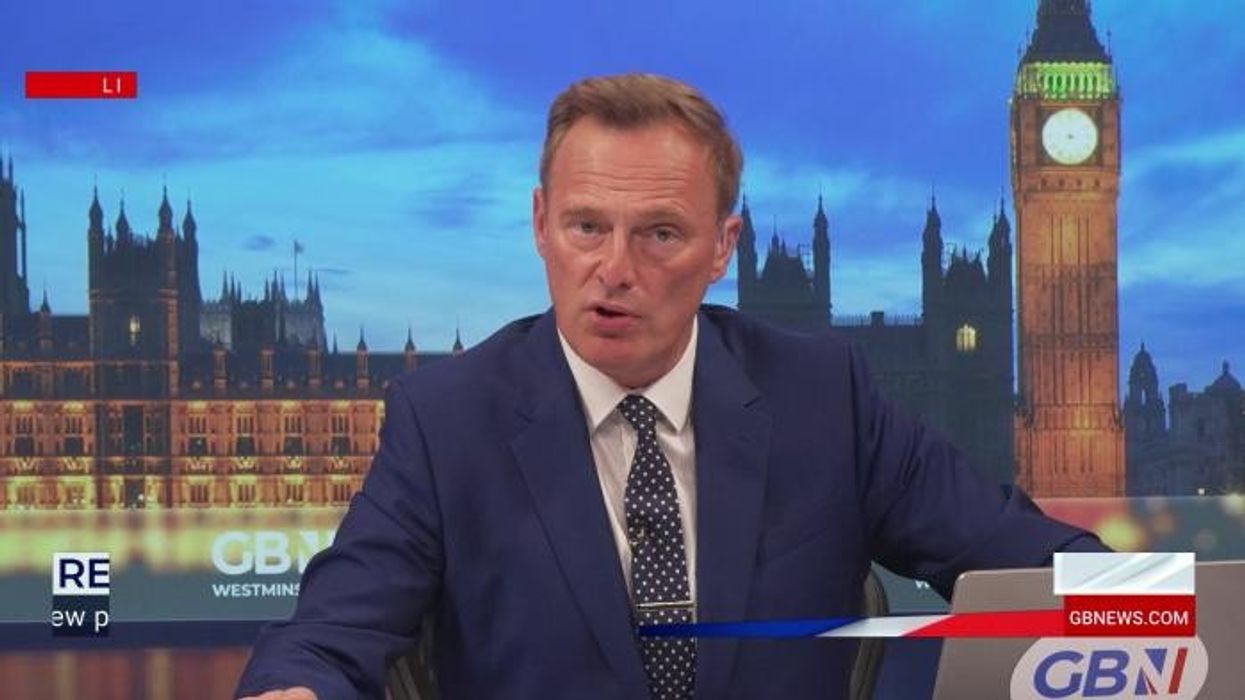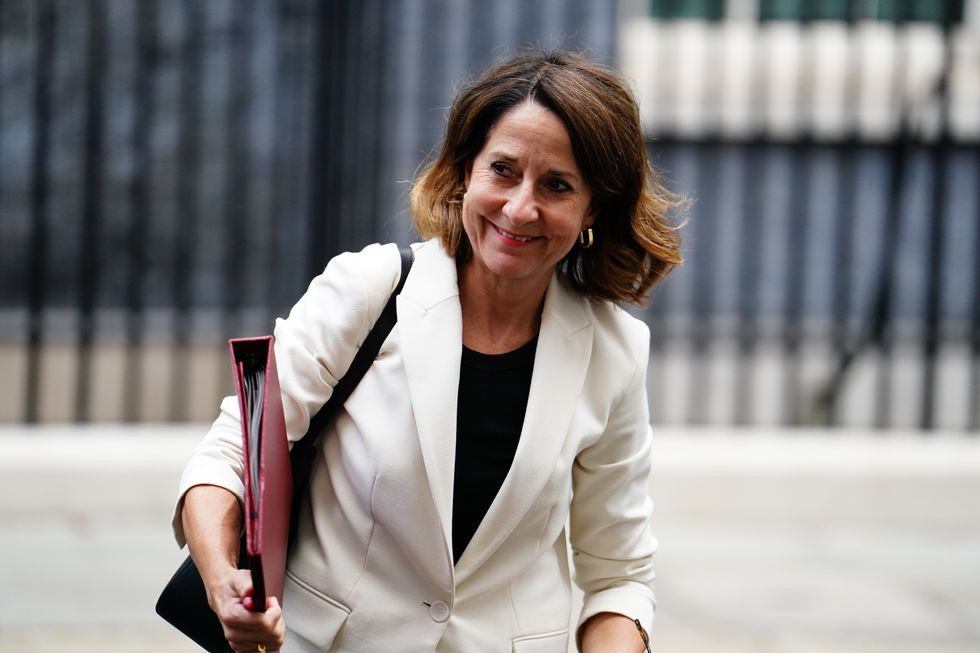State pension age should be 'pushed back' to 75 under 'radical reset', Labour told

David Pinless discusses pensioner safety in Britain |
GB NEWS

The state pension age is scheduled to jump to 67 years for thousands of Britons from next year
Don't Miss
Most Read
Latest
The Labour Government should raise the state pension age to 75 years old to ensure the retirement system does not collapse in the years to come, according to a leading economist.
Tom McPhail, the host of the Pensions Monkey podcast, has suggested radical reform is needed to make sure the retirement benefit remains financially viable in the long-term.
His intervention comes after the Office for Budget Responsibility (OBR) signalled the triple lock has become an unaffordable expense for the British taxpayer to keep paying.
According to the fiscal watchdog, the mechanism for raising state pension payment rates costs £15.5billion a year rather than the initially estimated £5billion annually.

The state pension should be raised to 75 under a 'radical reset', according to an ecoomist
|GETTY
Earlier this year, Pensions Minister Liz Kendall confirmed a review into the state pension age will take place as part of the recently launched Pensions Commission.
Writing in The Times, Mr McPhail said: "With people living longer and healthier lives, it makes sense to think carefully about when state support should begin. Otherwise, the system may simply become unsustainable."
"There’s a good argument that it should be set at about age 75. At the moment the state pension age is 66 and will rise to 67 by 2028, then 68 by 2046. A previous review recommended increasing it to 68 by 2039, but then a subsequent review kicked that idea into the long grass.
"At this point and given the fiscal pressures, new solutions are needed. So I would go for a radical reset: keep the state pension universal — same rate for everyone, irrespective of where you live, how healthy you are or how rich you are — but also push the state pension age back to about 75."
Projections indicate the UK population will reach retirement will surge from 12.6 million currently to 19.5 million within five decades, representing a 55 per cent expansion.
Do you have a money story you’d like to share? Get in touch by emailing money@gbnews.uk.
 DWP minister Liz Kendall has launched a new Pensions Commission | PA
DWP minister Liz Kendall has launched a new Pensions Commission | PAAs well as this Government expenditure on pensions relative to economic output is forecast to climb from the current five per cent to approximately 7.7 per cent during the 2070s.
Such an increase translates to an additional annual burden of around £75billion in current monetary terms, highlighting the scale of financial pressure confronting policymakers as they grapple with pension sustainability.
Current pension provisions fall short of basic living requirements, according to recent analysis from retirement experts.
The standard state pension delivers £230.25 weekly, amounting to £11,973 annually, though many recipients receive smaller amounts.
MEMBERSHIP:
- A mere 36 seconds in this hellhole made my heart sink. A snapshot of what's coming — Peter Bleksley
- REVEALED: How one 'dreadful' secret email risks Tory defection deluge to Nigel Farage's Reform UK
- We are ruled by an 800-pound gorilla that shields sex offenders, activist lawyers and open borders - Chris Philp
- REVEALED: The eight ex-Tory MPs on ‘defection watch’ as Nigel Farage eyes up big hitters to join Reform UK
- POLL OF THE DAY: Should we follow Trump’s lead and sentence flag burners to one year in jail? VOTE NOW
Research from Pensions UK reveals that maintaining even minimal living standards demands £13,400 yearly for individuals and £21,600 for couples.
Those seeking moderate retirement comfort require substantially more - £31,700 annually for single people and £43,900 for couples.
LATEST DEVELOPMENTS:
 Britons are concerned about the rise in the state pension age | GETTY
Britons are concerned about the rise in the state pension age | GETTYThe Labour Government has initiated a comprehensive examination of pension age thresholds amid mounting concerns about long-term affordability.
Present regulations set retirement at 66, with scheduled increases to 67 between 2026 and 2028, followed by a further rise to 68 during the 2044-2046 period.
Additionally, the triple lock mechanism faces scrutiny regarding its future sustainability. This guarantee ensures annual pension increases align with whichever proves highest: 2.5 per cent, wage growth, or inflation rates.
As it stands, the Pensions Commission is scheduled to publish the results of its review into the retirement age by 2027.
More From GB News










